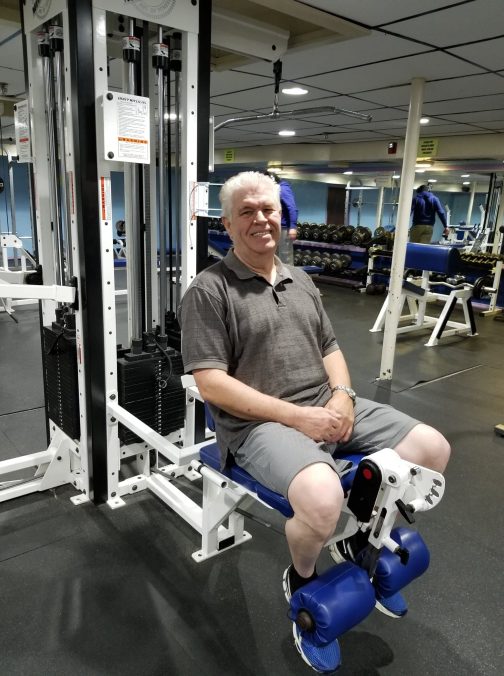Exercise benefits for seniors over the age of 55
In the United States:
1.) 92.2% of the 65 plus age group have one or more chronic diseases.
2.) 40% of the 65 plus age group take 5 or more medicaments per day.
3.) 45% of the 85 plus age group have Alzheimer’s.
Charles Eugster at TEDxZurich BMC Geriatrics 2011 11:47
Successful aging needs Good Nutrition and Exercise
Aging is not for the weak and to live well you must make the right choices.
Exercise has been proven to effectively prevent or slow certain diseases, both physical and mental, that come with age.
The success rate for exercise therapy for a number of diseases and conditions is over 40% and the number of diseases that are treatable by exercise is continuously increasing.
It has been proven that those who exercise gain strength, gain stamina, live longer and enjoy more activities.
Exercise is a viable solution to the problem of living longer but not healthier!
Dr Niharika Arora Duggal, also of the University of Birmingham, said:
“We hope these findings prevent the danger that, as a society, we accept that old age and disease are normal bedfellows.”
Professor Stephen Harridge, Director of the Centre of Human & Aerospace Physiological Sciences at King’s College London, said:
“Their bodies have been allowed to age optimally, free health would likely deteriorate.”from the problems usually caused by inactivity. Remove the activity and their
Just a few of the benefits to exercise
Prevent Disease
Studies have shown that maintaining regular physical activity can help prevent many common diseases, such as heart disease and diabetes. Exercise improves overall immune function, which is important for seniors as immune systems are often compromised. Even light exercise, such as walking, light cardio sessions, stretching can be a powerful tool for preventable disease management.
Other Diseases stopped, slowed or even reversed by exercise are:
- 1. Sarcopenia (the deterioration of muscle due to age can be completely reversed.)
- 2. High blood pressure
- 3. Many forms of cancer
- 4. Helps with chronic disabling conditions improving strength and stamina.
- 5. Reduces anxiety and depression
- 6. Helps control joint swelling and pain from arthritis.
- 7. Osteoporosis
- 8. Lowers risk of Alzheimer’s
- 9. Lowers Cholesterol
- 10. And many more…
Improved Mental Health
The mental health benefits of exercise are nearly endless. Exercise produces endorphins (the “feel good” hormone), which act as a stress reliever and leaves you feeling happy and satisfied. In addition, exercise has been linked to improving sleep, which is especially important for older adults who often suffer from insomnia and disrupted sleep patterns.
Decreased Risk of Falls
Older adults are at a higher risk of falls, which can prove to be potentially disastrous for maintaining independence. Exercise improves strength and flexibility, which also help improve balance and coordination, reducing the risk of falls. Seniors take much longer to recover from falls, so anything that helps avoid them in the first place is extremely important.
Social Engagement
Whether you join a walking group, go to group fitness classes or visit a gardening club, exercise can be made into a fun social event. Maintaining strong social ties is important for aging adults to feel a sense of purpose and avoid feelings of loneliness or depression. The key is to find a form of exercise you love, and it will never feel like a chore again.
Improved Cognitive Function
Regular physical activity and fine-tuned motor skills benefit cognitive function. Countless studies suggest a lower risk of dementia for physically active individuals, regardless of when you begin a routine.
A small price to pay:
The cost of exercise versus the cost of medically treating the problems that come as a result of living a sedentary life.

